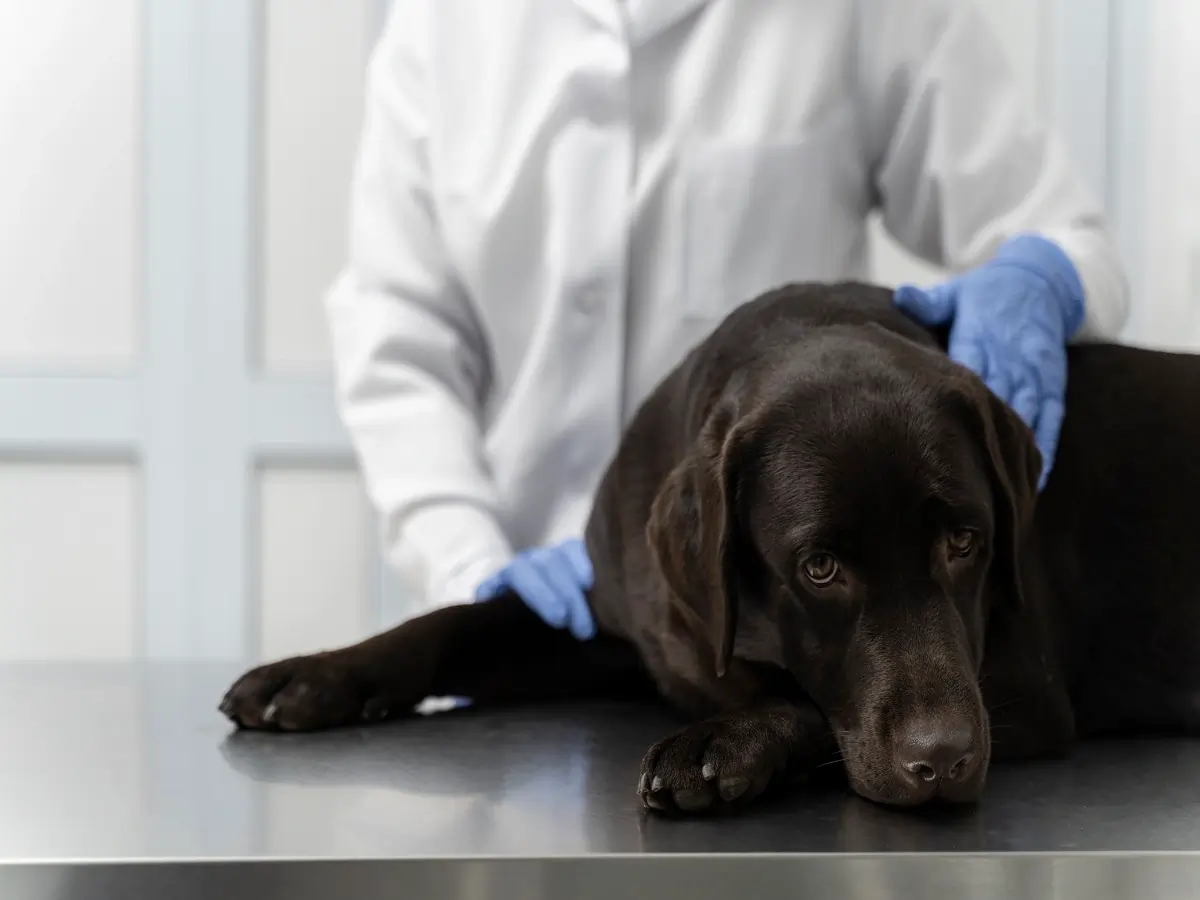Dogs are amazing creatures. They are always loyal and full of energy, which makes them such a great friend. But did you ever wonder can dogs be autistic like humans? Autism is when people find it hard to connect with others, have trouble talking, and do things over and over. We have studied it a lot in people. But now we are thinking about dogs.
In this blog, we are diving into that question here. First, let’s understand autism in people, then see if dogs might have something similar. We will look at science, stories, and what vets say to get a clearer picture.
So, can dogs be autistic? Let’s find out together and help pet owners understand their pups better.
Table of Contents
ToggleCan Dogs Be Autistic?
Some people say dogs can act like humans with autism, doing things over and over, finding social stuff hard, and getting bothered by certain things. But scientists are not sure if dogs really can have autism like people do. Autism is a complicated thing we mostly study in humans. It is about how our brains grow and can make it tough to talk to others, understand them, or do things in a regular way.
Some studies suggest that dogs might act like people with autism, but we are not sure yet. This topic is still being researched and debated by scientists. One study from 2019 in the journal Animals looked at if dogs show autism-like behaviours. Experts in animal behaviour and vets also talk about this. Even though there is no clear proof yet. It is interesting and still being studied by researchers and pros in the field.
So, while dogs might show behaviours that look like autism. It is not sure if it is really the same thing. Talking with a vet or someone who knows about animal behaviour might help if your dog has some odd habits.
Symptoms of Autism-Like Behaviours in Dogs
Here are some behaviours in dogs that might look like autism:
- Repetitive actions: Doing the weird or same things over and over, like spinning or pacing.
- Difficulty with social interaction: Finding it hard to socialize, maybe by not making eye contact or not understanding what people or other dogs want.
- Sensory sensitivities: Being really sensitive to stuff like loud noises or bright lights.
- Fixation on objects or routines: Getting really into certain toys or routines and not wanting to change them.
- Difficulty adapting to changes: Feeling anxious or upset when things around them change.
These behaviours can be different for each dog and can be influenced by things like genes or past experiences.
Causes of Autism-Like Behaviours in Dogs
Here are some reasons why dogs might show behaviours similar to autism:
- Genetics: Dogs can inherit genes that make them more likely to have traits like autism.
- Environmental Factors: Things dogs experience early on, like stress or toxins, might affect how their brains develop and cause autism-like behaviors.
- Brain Chemicals: Changes in chemicals in the brain, like serotonin or dopamine, can affect how dogs behave, making them show autism-like traits.
- Brain Abnormalities: Problems in how the brain is structured or works can lead to behaviors that look like autism in dogs.
- Immune System Issues: Trouble with the immune system might cause inflammation in the brain, leading to autism-like behaviors.
- Hormonal Changes: Shifts in hormone levels can influence a dog’s brain and behavior, making them act like they have autism.
- Socialization: Not learning to socialize properly when they are young can affect how well dogs interact with others, making them seem like they have autism.
- Breed Differences: Some breeds might be more likely to show autism-like behaviors because of their genes or specific traits.
- Medical Problems: Certain health issues, such as seizures or brain tumors, could affect how a dog’s brain works and cause autism-like symptoms.
- Unknown Factors: Even though scientist and researcher are studying it. There might be other reasons why dogs act like they have autism that we don’t know about yet.
Treatments For Autism in Dogs
If you see your dog acting in ways that seem like autism. It is smart to get help from a vet or an animal expert. Here are some steps you can take:
- Consult a veterinarian: Set up a visit to talk about your dog’s behavior. The vet can check for any health issues that might be causing the behaviors.
- Get advice from an animal expert: Consider talking to someone who knows a lot about dog behavior. They can figure out what is going on and make a plan to help your dog.
- Provide a structured environment: Dogs like knowing what is going to happen. Keep things predictable with regular routines for meals, walks, and playtime.
- Use positive training: Teach your dog good behaviors with treats and praise. Avoid punishing them, which can make things worse.
- Create a safe space: Make sure your dog has a cozy place to relax when they are feeling stressed. This could be a bed or a quiet corner.
- Watch for triggers: Figure out what might be making your dog anxious, like loud noises or bright lights. Try to avoid these things when you can.
- Keep an eye on things: Pay attention to how your dog is doing and be ready to change your plan if something is not working. Every dog is different.
- Patience and understanding: Above all, Be patient and kind with your dog. Building a strong bond based on trust and caring can help them feel safe and happy.
Remember, being patient and caring is really important when helping a dog with special needs. With the right help, your dog can live a happy life.
Can Dogs Be Special Needs?
Yes, dogs can have special needs, just like people. Some dogs might need extra care because of health or behaviour issues. It is important to understand and help them so they can live happily and healthily. Taking care of dogs with special needs means paying attention to what they need and making sure they are comfortable. This could include medical care, special equipment, or changes to their environment.
Helping dogs with special needs is not just about their health. It also strengthens the bond between humans and animals, making us more caring and compassionate. Plus, it encourages everyone to be understanding and supportive of animals with unique needs.
In short, caring for dogs with special needs is important for their happiness and health. By giving them the right care and love. They can be happy members of our families and communities.
Final Words
In conclusion, while dogs may show behaviors like autism, it is still being studied. We have talked about ways to understand and help dogs with these behaviors, like creating a supportive environment and getting help from pros. But we need more research to know if dogs can really have autism. For now, let’s focus on being kind and patient with our furry pals. Working together with vets and experts. We can give them the best care and keep them happy and healthy.












